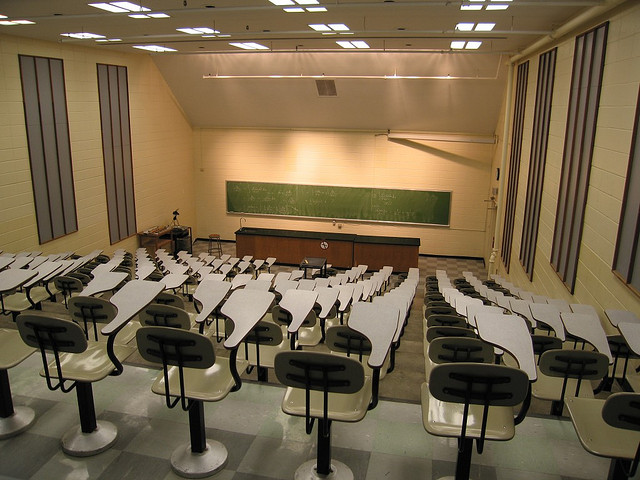The University of Toronto, where I’ve been privileged to teach a half-course for decades (and more recently two half-courses, fall and spring) is being struck by its 6,000 teaching assistants, including my own. Together with contract faculty — those on short-term contracts without security and far less pay or benefits than tenured profs — they handle maybe 60 per cent of courses. The latter are currently voting on an offer. The TAs are picketing but not asking anyone to cancel or skip classes. At York, both categories are on strike and the university simply shut down, demonstrating how indispensable those roles are. This isn’t Huxley College that Groucho Marx presided over in Horse Feathers, with berobed, bewhiskered profs.
It also isn’t the union world of Solidarity Forever. Solidarity is an old-fashioned word like horse feathers but it’s not as quaint as it sounds. The basic idea is that it’s very hard to win a strike, especially in the public sector where public funds are involved, without showing your fellow citizens that your cause is also in their interest. The leaders of Toronto’s disastrous garbage strike of 2009 didn’t bother and had their members’ jobs privatized out of existence.
Making that case here would require widening the view. The internal debate between the unions and the university administrators is over how to divide the current pot and my sympathies tend to slide toward those at the very long short end of the budgetary stick: the TAs and contract profs versus managers, fancy facilities etc. But the public’s stake is rather different.
The nub, I’d say, is that under severe financial stress, universities increasingly moved toward a narrow, customer-service model. They’re still mainly funded — over 60 per cent — publicly. But tuition is way up — about 300 per cent — since 1990. To cover that, many students and families go deeply into debt, and then justify it via the money value of having a degree. To save further, class sizes have ballooned and teaching got farmed out to TAs and contract faculty — some of whom are now nearing retirement without ever scoring a solid university job.
This cheapens both the teaching and the learning process. You don’t teach well if you feel demeaned and you don’t learn well if you feel you’re being processed. So what? If you’re paying a ton to get a degree that’ll give you a leg up in a tough economy, just gimme the grades and I don’t care. Except human beings don’t actually work that way, they want more despite their bitter realism, and education promises it. An undergrad career should really be about enriching your life and learning to think critically enough to be an astute citizen. From society’s point of view, anything else leads to cynicism and dysfunction. So it’s not just the registered customers who have a stake, it’s all of us and our future.
The long-term solution — not to the strikes but the deterioration — is changing the model. As long as individual students or families are being squeezed to pay, they’ll keep demanding verifiable returns. And as long as universities need those revenues, they’ll respond with short-term accommodations because in the model, the customer is always right. So change the customer. Let it become society — all of us — with our larger interests. We all pay. The short-term pressures abate. Universities focus on learning or teaching, not satisfying customer demands.
Where would the money come from? Taxes, of course. Is that stupidly unrealistic? The same claims were made against free, i.e. tax-funded, public schools in the 1930s and public health-care in the 1960s. Germany has no tuition fees for any of its universities and it’s not exactly dreamy or impractical. The same goes for many other places. When I was in Finland I met a university president who had to return tuition fees to foreign students who’d happily paid them, so as not to set a bad precedent. The only unreal thing about free higher education is that it seems so unreal. We should feel ashamed.
Let me end by stressing how the customer-service model infects learning itself. I sympathize with students who have to work, take on debt or deal with parental pressure. When we spend time on topics not directly connected to getting a degree or job, I sometimes feel embarrassed and want to apologize (and sometimes do). But universities will never be good job placement agencies. Those tasks belong to business and governments. The customer in this case isn’t right — and doesn’t even want to be the customer. Time to give it a rest.
This column was first published in the Toronto Star.
Photo: Nayu Kim/flickr




